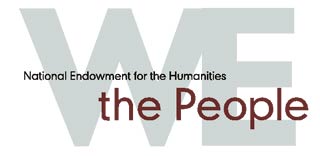On this page:
For Teachers » Core Concepts
CONCEPT 4
The decade before the Revolution began was a continual tug of war between those who wanted to force confrontation and those who sought accommodation and compromise.
Suppose we all agree on the nature of a problem. Does that mean we agree on how to solve it? What happens when we disagree sharply over the proper solution?
Political change emerges from conflicts over solutions, from tensions between moderates and radicals over how to address a particular challenge. It is important that students understand how when groups that share goals develop different, often competing, methods to achieve those goals, the resulting tensions powerfully shape events.
- some people had specific motivations to force confrontation; others had specific motivations to seek accommodation
- each group used events in a different way
- the dynamic of the opposing approaches is evident in the arguments of each group which were intended for the other
- by 1775/1776, advocates of confrontation were outnumbering the accommodators
GOALS:
As a result of using this website, students will understand that...- identifying pertinent documents:
- finding at least two documents from the Coming of the American Revolution website
- explaining how they illustrate this goal
- interpreting the documents
- conducting a Document Analysis (see Document Analysis Worksheet)
- answering Questions to Consider (writing and discussion prompts) at bottom of each document description
- investigating the significance and interconnections of the documents
- following one or more of the Further Exploration research assignments and project suggestions at bottom of each document description
- drawing conclusions backed by evidence from documents and introductory essays
- answering the following Framing Questions (drawn directly from the stated Goals above) based on those conclusions and that evidence collected from the documents:
- What reasons did some people have for forcing confrontation and why did some seek accommodation as the best course?
- How did each of those groups use a specific event that you have selected and what were their motivations?
- How did each group try to persuade the other?
- Why did the accommodators begin to lose ground?
OBJECTIVES:
Students demonstrate their understanding of this concept by...Documents
The Sugar Act
The “exclusive Right of the People”
The Stamp Act
Safety Comes First
Letter from Archibald Kennedy to Cadwallader Colden (retained copy), 2 November 1765, and letter Cadwallader Colden to Archibald Kennedy (copy), 2 November 1765
View Document
Prosperity the End; Protectionism the Means
The Formation of the Sons of Liberty
Under the Liberty Tree
Keeping the Peace
"Extract of a letter from Charlestown, South Carolina, Dec. 2, 1765 ..."
Article from page 1 of the Supplement to the Boston Gazette, 27 January 1766
View Document
Non-Consumption and Non-importation
Trade Violators Exposed!
"Summary of the Cargo of the Snow Pittt [sic] ..."
List from page 1 of The Boston Chronicle, Number 120, 17-21 August 1769
View Document
"zeal in the cause"
The Boston Massacre
Tories Strike First
A Sinister Plot?
Justice Prevailed
The Boston Tea Party
The "True Sons of Liberty" Weigh In
Will you Shrink at Boston?
"Extract of a Letter from Philadelphia, Dec. 4, 1773. Our tea consignees ..."
Article from page 3 of The Boston-Gazette, and Country Journal, Number 975, 13 December 1773
View Document
342 Chests of Tea into the Sea
"Boston, December 20. On Tuesday last the body of the people ..."
Article from page 3 of The Boston-Gazette, and Country Journal, Number [976], 20 December 1773
View Document
Bostonians, Keep up your Courage
Good and Loyal Subjects Speak up
"At a Town-Meeting held in Marshfield ..."
Article from pages 1-2 of The Massachusetts Gazette; and the Boston Post-Boy and Advertiser, Number 859, 31 January - 7 February 1774
View Document
The Coercive Acts
Paying for the Tea
"To the Printers of the Massachusetts Gazette ..."
Article from page 2 of The Massachusetts Gazette: And The Boston Weekly News-Letter, Number 3693, 14 July 1774
View Document
The First Continental Congress
Spirited Debates
Speaking with One Voice
"At a Meeting of the Delegates of every Town and District in the County of Suffolk ..."
Article from page 1 of the Supplement to the Massachusets-Gazette, 15 September 1774
View Document
A Humble Petition
The Petition of the Grand American Continental Congress, to the King's Most Excellent Majesty
View Document
“A System formed to enslave America”
"Friday, October 14, 1774. The Congress came into the following Resolutions"
From Extracts from the votes and proceedings of the American Continental Congress: held at Philadelphia on the 5th of September 1774. Published by order of the Congress.
Philadelphia: Printed by William and Thomas Bradford, 1774.
View Document
Lexington and Concord
A Powder Alarm
The Second Continental Congress
A Spirited Manifesto
A Declaration by the Representatives of the United Colonies of North-America, Now Met in General Congress at Philadelphia
View Document
A Pesky Preamble
Funding from the Massachusetts Society of the Cincinnati supported enhancements to this website.




